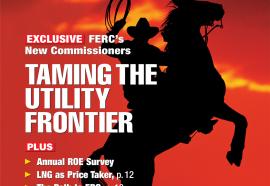CIOs Under Pressure
IT officers are getting more efficient, but guess what keeps them up at night?
Ever-present security concerns are keeping utility chief information officers up at night. With their IT budgets under constraints in a back-to-basics era, four CIOs speak out about their concerns over funding, staffing, and the future.







